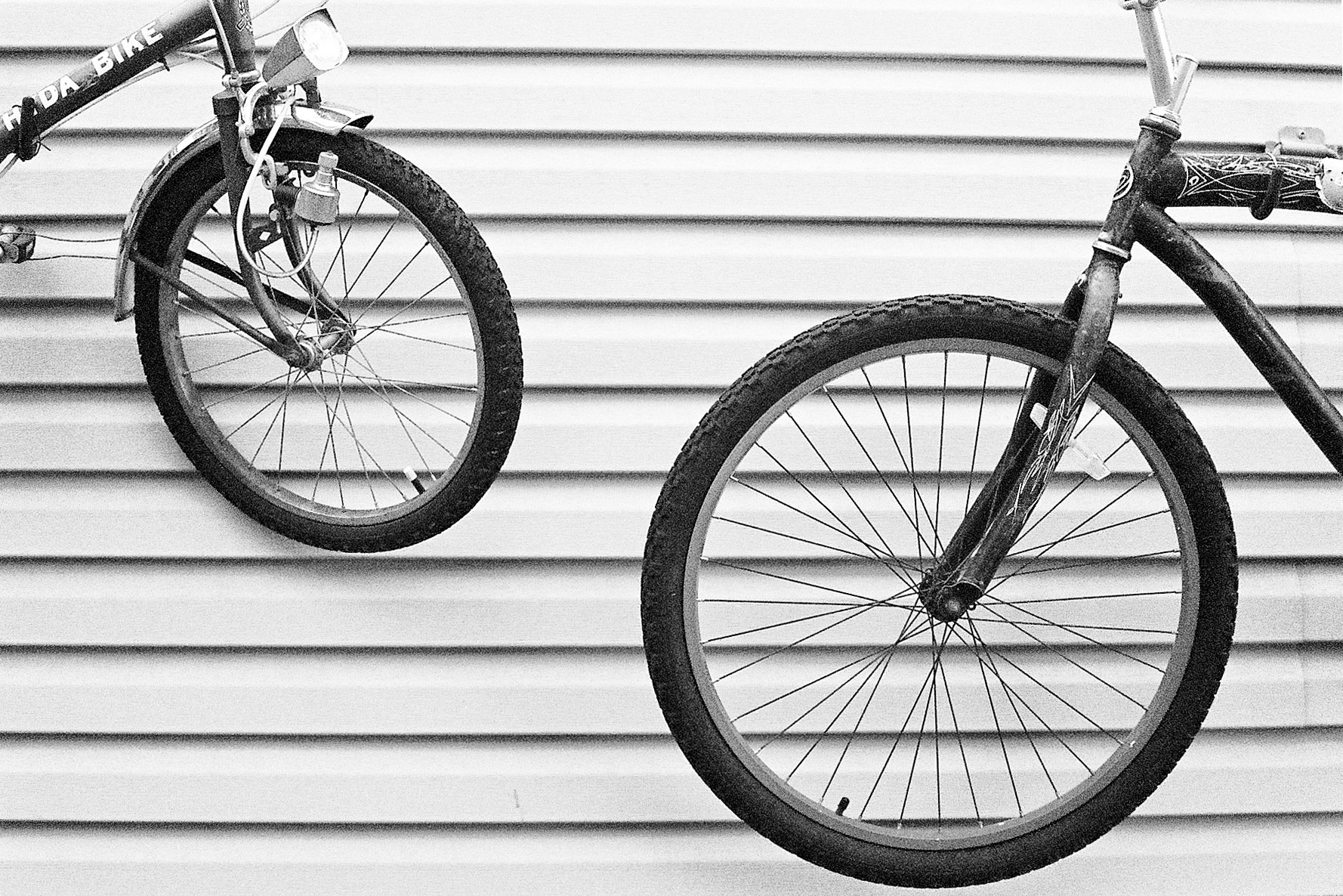I want to thank Max Heinrich of the Analog Insights YouTube channel for the inspiration to write this post, although he may not know it. If you’re interested in film photography, you should subscribe to Analog Insights.
Today’s Post by Joe Farace
“This is the real secret of life — to be completely engaged with what you are doing in the here and now. And instead of calling it work, realize it is play.”—Allan Watts
In my post The Three Phases of Photographer’s Creative Life I write about what happens during Phase One of a photographer’s creative development: That first phase occurs right after a photographer gets their first “good” camera and begins to discover the medium’s full potential. During this time, new photographers enthusiastically explore their world and every memory card or roll of film is chock full of images that look so much better than they could have ever imagined.

How I Made this Photograph: I shot these bikes hanging on a wall in an alley just off Mainstreet (really it’s one word) in Downtown Parker, Colorado. The camera used was a Contax 167MT with P5 battery pack and Yashica 50mm F/1.7 ML C/Y mount lens. The film used was Ilford XP-2 , a C-41 process black and white film that was beautifully processed and scanned by Mikes Camera in Lone Tree Colorado. Exposure was unrecorded.
The Zen of Film Photography
Unfortunately, this blissful period doesn’t last long. It doesn’t have to stay that way, which is one of the reasons I’ve started, or maybe should say re-started. shooting film. I think shooting film embodies a Zen aspect that’s much more than the instant gratification digital photography provides. (Not that I’m giving up digital photography.) There is even some people’s assertion that shooting film can be therapeutic.
The practice of the Zen mind can be traced back to the concept of the beginner’s mind. Think of this as part of my Phase One take on the evolution of photographer’s creative process. This kind of mindset lets you see things as they really are and can help you realize the true and original nature of things. This term is translated from the word, Shoshin from Zen Buddhism that means you look at every situation you’re placed in as if it’s the first time you’re seeing it. If you have a Zen mindset, you can allow your thoughts, feelings and perceptions to be what they are without judgment. Here’s some tips I found on-line from Ilene Strauss Cohen Ph.D. that can help you acquire the mindset of a Zen master.
- Be Mindful. This is also something William Mortensen talks about in his book The Command to Look.
- Become an Objective Observer. This one has a real Ansel Adams feel about it.
- Exercise Regularly. (This is something I need to work on.)
- Don’t Try to Change Your True Feelings.
- Stay Present in What You’re Doing.
These are just some thoughts I’m sharing with you on this Saturday…
If you enjoyed today’s blog post and would like to buy ($2.50) Joe a cup of tea, click here.